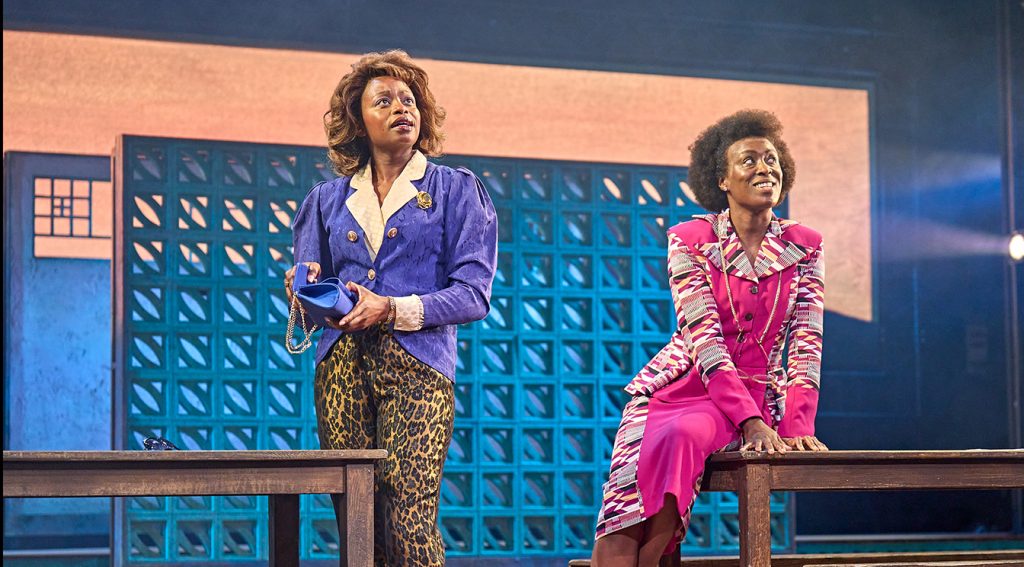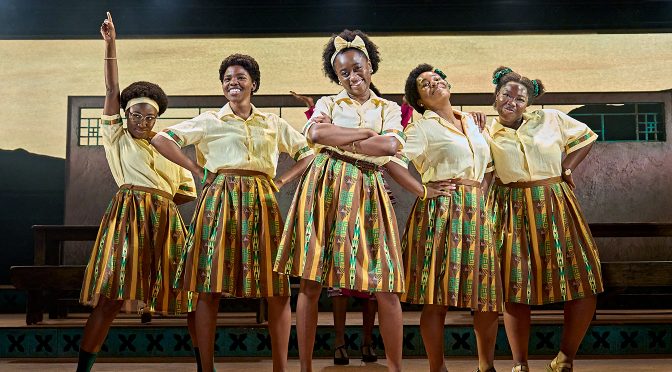Jocelyn Bioh’s play soars above the average high school drama because of its brilliant comedy and its Ghanaian setting. The plot is deceptively simple and playfully predictable, as well as remarkably effective and hugely entertaining. For this UK première, the play is, also, brilliantly performed.
With its subtitle nodding at a Hollywood film (American culture looms large over these children’s lives), the schoolgirls of the title have the kind of cliques you find the world over. Bioh has written fantastic characters led by Paulina (Tara Tijani), who is the school Queen Bee and nasty with it. But from the start, none of her followers are that meek, which leads to a lot of humour. Ama may be the first to answer back, but Gifty and Mercy have minds of their own, and Nana rebels quickly. It is the entrance of new girl, Ericka, that sets up the drama, and more great jokes follow.
The performances are accomplished. Led by Tijani, Heather Agyepong, Francesca Amewudah-Rivers, Bola Akeju and Jadesola Odunjo (a cracking stage debut) convince as a clique full of tension and discontent. Anna Shaffer is also superb as the new arrival, carefully revealing her character’s life story.
Every line is made the most of, but that’s only half the fun – reactions to the insults or slights are brilliant. Pay attention and keep your eyes peeled. Director Monique Touko has engendered detailed performances that are a delight.

The teens are funny in their naivety (the 1986 setting adds here) but competing in an international beauty contest becomes a big deal for Paulina. She isn’t the only one taking it seriously. A recruiter, a former pupil at the school and Miss Ghana 1966 herself, turns up. Alongside the school’s admirable headmistress, these are two strong roles for Deborah Alli and Alison A Addo, who anchor the show and provide the potential for debate – the contest can change lives, but at what cost?
The highlight of the show is a trial pageant. Given the 1980s fashion, costume designer Kinnetia Isidore is the real winner here but, after a singing section (that reduced me to tears), we get a twist that emphasises the racism and colourism these characters face.
Paulina is revealed as “crazy and desperate” – the lies we’ve been laughing at are truly pathetic. And, sadly, Paulina knows it. When she tells the fairer-skinned Ericka: “the world has already decided you are better than me”, it is heart breaking. The end of the show is bravely downbeat and the energy Touko has kept so electric plummets, but it serves to illustrate how perfectly controlled the whole production has been – top marks all around.
Until 15 July 2023
Photos by Manuel Harlan

